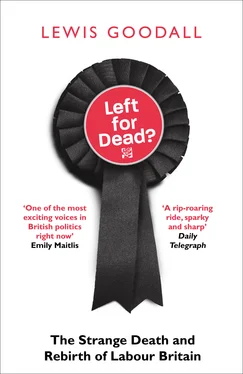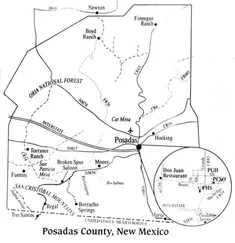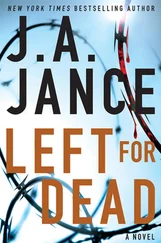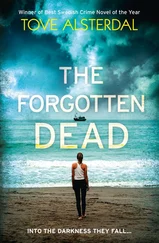But eleven years later, in 2016, Longbridge, like hundreds of other places that had been forgotten, that seemed so powerless, discovered a political vent, discovered that alternative in its rejection of the European Union. Longbridge, and all of the other Longbridges, had had enough, they fought back.
And little wonder. Many promises were made in Rover’s wake. On the eve of its demise, Tony Murphy, then of the Amicus union, said: ‘Yet again I’m having to write an obituary for another stalwart of the British engineering and manufacturing industry. Longbridge and the whole of the West Midlands are becoming ghost towns. We are going to fight for every job possible at Longbridge … We don’t want to see another supermarket built.’
On a grey, December afternoon, the sort of midwinter day sunlight barely troubles, I returned to Longbridge and met up with my oldest friend, Liam. We’d met at our local primary school some twenty-three years earlier. My dad had worked at Rover, so had his neighbours. The place had changed much in twelve years, and yet not enough. Half of the old site had been transformed. At its centre was the biggest Sainsbury’s I’d ever seen. Later that afternoon, I found out Liam’s neighbour now worked there.
The Sainsbury’s wasn’t alone. It had been joined by a Hungry Horse pub, a Boots, a small shopping precinct, a Poundland, a large youth centre called (in what I can only assume to be the product of a town planner’s dark humour) ‘The Factory’ and a small business technology park. The promised industrial jobs never came. In truth, I doubt anyone expected them to. And the site of the main factory, the one I walked past every day on my way to school? Well, that had been replaced only by detritus, mainly plastic bags and rubbish, willowing in the wind. There was nothing there. Twelve years on, no one could think of anything to do with it.
This is not a book about Rover, nor is it one solely about my own experiences. This is a book about the decline, near-death and potential rebirth of social democracy and the left in Britain. It’s a story of how the left lost touch with the economic and cultural lives of its voters. How those voters became disillusioned with a party that seemed unable to imagine how to improve its own voters’ lives or tell a convincing story about their so doing. How, as a result, the centre left has withered but how also, a new Labour Party, a new left has emerged to take its place; but which, ironically, is no closer to the voters who became alienated in the first place. It’s a story of transformation, of Labour leaving its historic working-class moorings behind and sailing into a new world, depending on new people, new classes and new places. It’s a story that begins with Labour, centred in Britain, but which holds lessons for its left-wing sister parties and students of politics around the wider world. It’s a story that asks how Labour came so close to death only to be rescued, or at least reprieved, by forces not of its own making.
I feel I’m in a decent place to evaluate all this: I’ve been following what has happened ever since the 2015 general election. I’ve interviewed Jeremy Corbyn and nearly every single senior Labour figure. I’ve spent more hours than I care to remember travelling the length and breadth of the country speaking to Labour clubs, voters and members in all four corners of the kingdom.
Yet it’s more than that; I was born into a working-class Labour family but doing the thing that they wanted most of all – getting educated, moving away, going to Oxford, leaving the familiar and making anew. In so doing, in lots of ways, I feel removed from my family and our old way of life, in which I was happy. But on the other, I don’t entirely feel at home with the new world that has taken its stead, nor with the new Labour Party that has been created which looks, feels and sounds so much like the new rarefied world I’ve entered. Perhaps then, as a journalist, I’m in the right place, not as I used to think as a politically obsessed kid as a participant in the arena, but as a passionate observer.
In the interest of full disclosure, I should say at the outset that I joined the Labour Party when I was 15 years old, as soon as I was able. There’s no point in not being up front about that. I was a very political young man – I still am. For me, as a 15-year-old, I felt my sense of class very deeply. Labour was for kids like me and families like mine. I wanted to change my life and that of those around me and joining Labour, my eyes dazzled by the New Labour politics of the age, seemed natural. I sat in dusty leisure centres and school halls on Thursday evenings, debating motions and resolutions, and gave up my teenage Sundays to leaflet in the drizzle. It felt right. Today – with the bonds between Labour and the sort of kid I was frayed – I don’t know whether the 15-year-old me, now, would do the same. This is why I tell you this. Certainly, as a reader you deserve that honesty. You might argue that such history (and such openness) is incompatible with my job as a political correspondent. I would emphatically reject that. I have long left any party affiliation behind me. Every political journalist has a past and often a political one – indeed, given our borderline obsession with all things politics, it would be peculiar if we didn’t. Other journalists’ past (or present) political predilections are well known. But straightforwardness is not the only reason. Most importantly, I talk of my past here because it is directly relevant to the story I propose to tell. I was born into the automatic Labourism of my class and birth. As I have changed, moved on and grown up, so in a peculiar way has Labour. These pages tell the story of the evolution of the party I knew. I hope to tell the story of that evolution as fairly and dispassionately as I can. But it is nonetheless also a personal one.
The only living remains of the Rover factory today is the Austin Social Club, where I spent so many of those childhood Christmas Eves and my dad a fair bit of his wage. It’s a lingering remnant of what was: a workers’ club for a workplace long gone.
Around the new precinct, through the rapidly descending December fog, I noticed what appeared to be two road signs outside the shops. On closer inspection, I could see they weren’t road signs but instead each carried a phrase. They stopped me dead: on the left ‘WE SLEPT TO THE SOUND OF HAMMERS’ and on the right ‘IT WASN’T ABOUT CARS, IT WAS ABOUT PEOPLE’. Many of my friends find the notion of working in industry almost quaint. To us, it wasn’t just a way of life, it was a reason to be. It was under those hammers, and those like them up and down the country, that the Labour movement was forged. And now they’ve ceased to sound, the old movement has withered. But out of its shed skin something else has emerged, something new. It feels, with the 2017 general election result, that the new is half-formed. The old is not quite dead. But its new party is not yet quite born. Perhaps, like me, Labour is betwixt and between two worlds.
*He survived through a combination of Grandad’s munificence and a bit of light form-fiddling.
†I didn’t know it, but looking back, I’d stumbled upon Keynesian economics without realising.
Chapter 1
What Went Before: New Labour and the Left
I assessed that there were three types of Labour: old-fashioned Labour, which could never win; modernised Labour, which could win and keep winning, which was my ambition from the outset; and plain Labour, which could win once, but essentially as a reaction to an unpopular Conservative government.
Tony Blair, A Journey , 2008
If she wants a PR war, then she can have a PR war … I’ll Mandelson her. Nobody wanted New Labour, Jeremy. But we all know how it works.
Читать дальше












